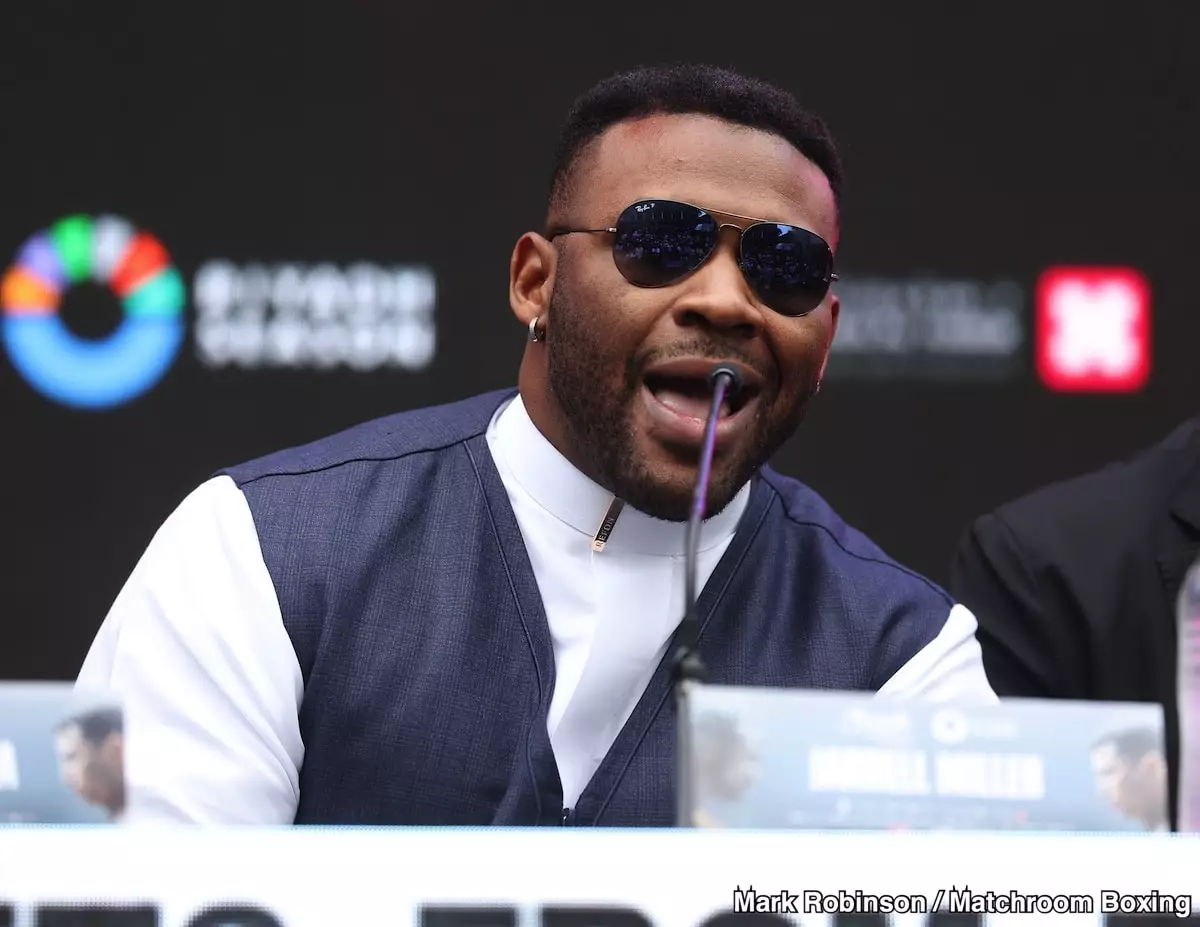In the ever-dynamic world of heavyweight boxing, fans have been dealt a disappointing turn with the cancellation of the highly anticipated bout between Derek Chisora and Jarrell Miller. The news has left many supporters reeling, as the clash between these two powerhouses promised an entertaining and fiercely fought contest. However, social media has become the stage for Miller’s fury, directed primarily at his promoter, Dmitry Salita, whom he has publicly condemned in scathing terms. Miller’s outburst sheds light not only on the specific situation at hand but also on the often tumultuous relationships within the sport’s promotional landscape.
Miller did not hold back in his critiques, labeling Salita as the “dirtiest human being” he has encountered, implying that their professional relationship has soured to a degree rarely seen in boxing. Such vehement allegations indicate deeper issues beyond just a canceled fight; they point towards the fraught nature of contracts and allegiances in the sport. Boxers, who dedicate their lives to perfecting their craft, find themselves in precarious positions when their promoters fail to meet expectations or fail to facilitate opportunities they believe they deserve. These frustrations are exacerbated by the fierce financial realities of boxing, where earnings and contract negotiations often become a battleground for disputes.
In the midst of Miller’s diatribe, the future of Chisora looks somewhat questionable. Instead of the anticipated clash with Miller, reports suggest that he is now set to face Otto Wallin, a matchup that, while interesting, fails to ignite the same spark among fans. Wallin, noted for his tough bouts against elite fighters like Tyson Fury, is a competent southpaw whose resume speaks volumes. However, the question remains whether this change of opponent will resonate as strongly with the fanbase as the Miller fight would have.
Chisora’s career has been a rollercoaster, marked by thrilling bouts and heart-stopping finishes. With a record of 35 wins and 13 losses, he remains a formidable presence in the ring. Wallin, on the other hand, enters the matchup at 27-2, fresh off a stoppage victory, which may bolster his confidence. This poses a critical question: Can Chisora adjust quickly enough to face a fighter with Wallin’s skill set, especially considering his own advancing age and wear?
While fans ponder the implications of Chisora versus Wallin, it’s essential to consider how these changes affect the overall heavyweight landscape. A victory for Wallin could potentially reset the narrative around both fighters, solidifying Wallin’s place in title contention while throwing Chisora’s future into uncertainty. Conversely, a win for Chisora could revitalize his career and heighten his status against younger contenders.
As the dust settles from the fallout of what could have been an electrifying match—and with the background drama surrounding Miller and Salita continuing—heavyweight boxing stands at a crossroads. Every shift in the lineup brings new narrative arcs and player dynamics into focus. As fans, the anticipation lingers: who will emerge victorious when Chisora and Wallin finally square off, and how will Miller’s battle against promotional challenges evolve? The answers await, but the journey promises to be anything but dull.

